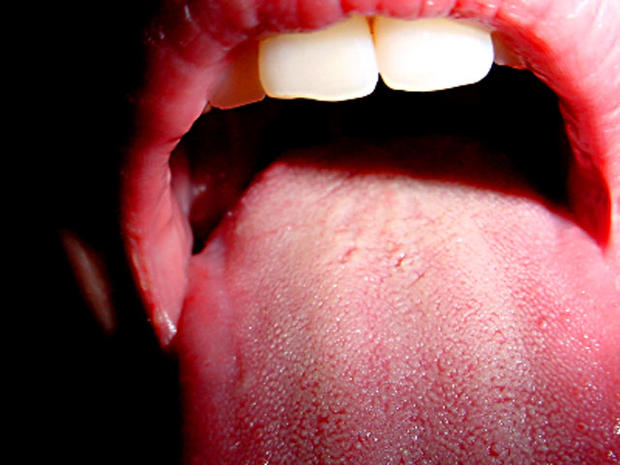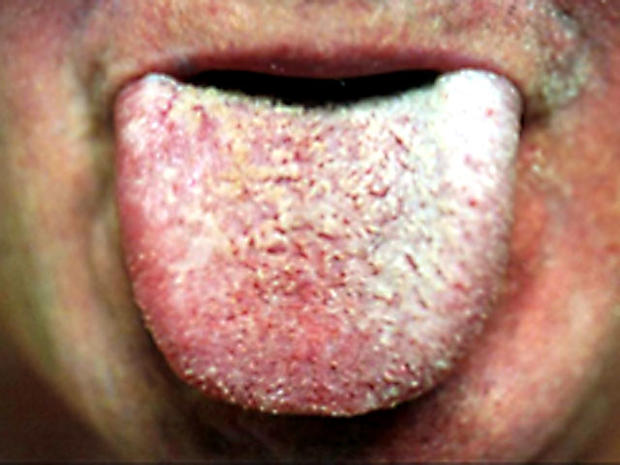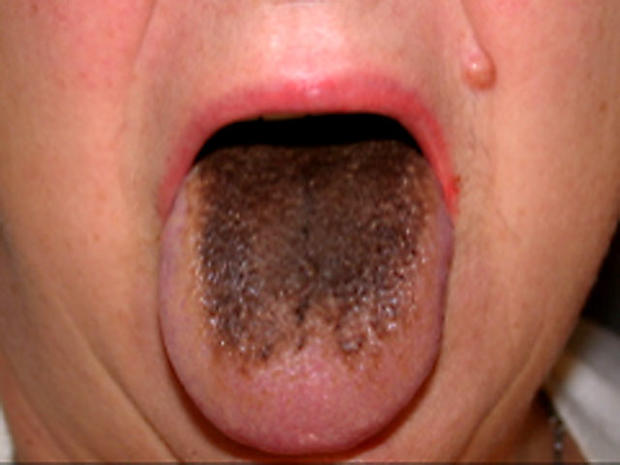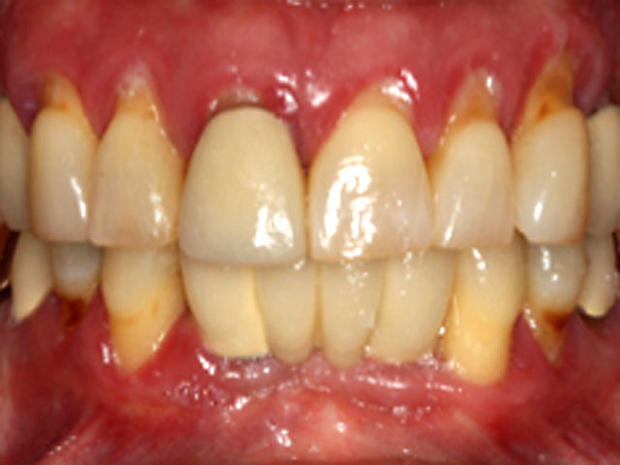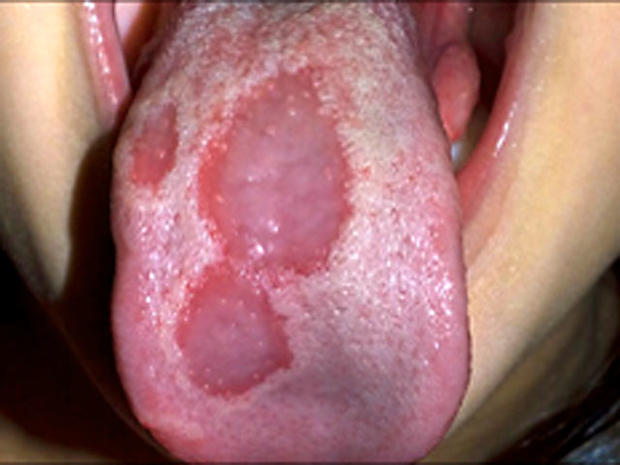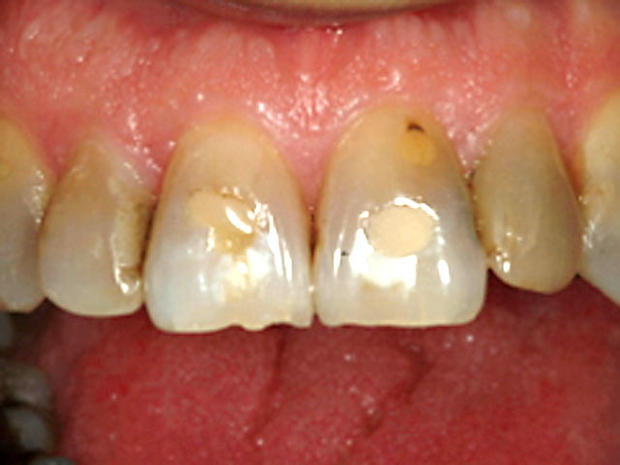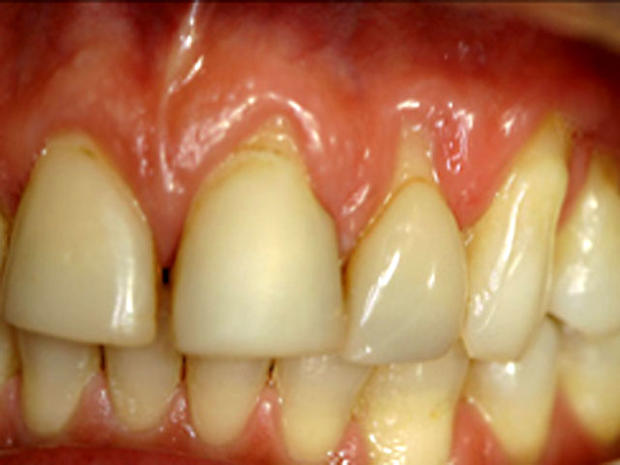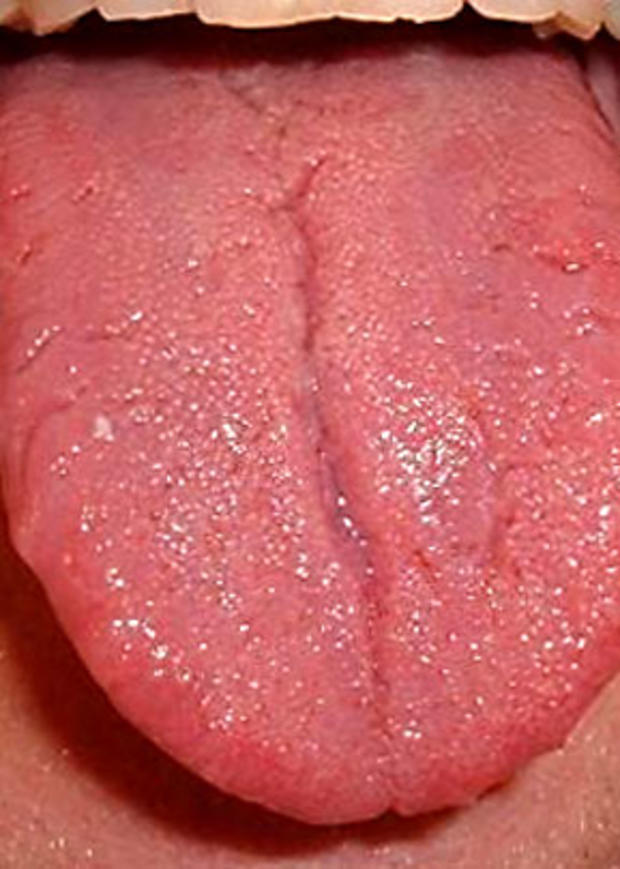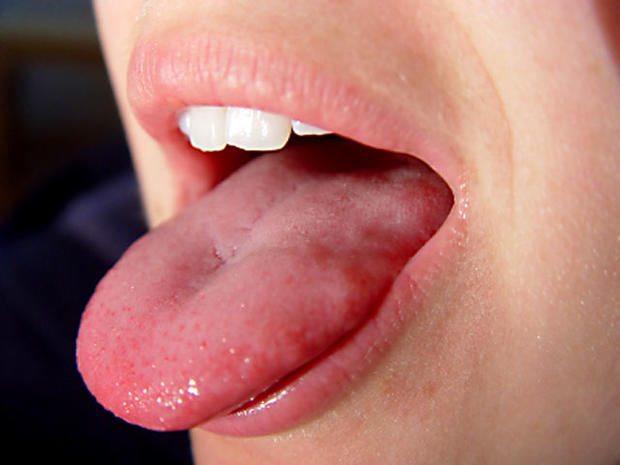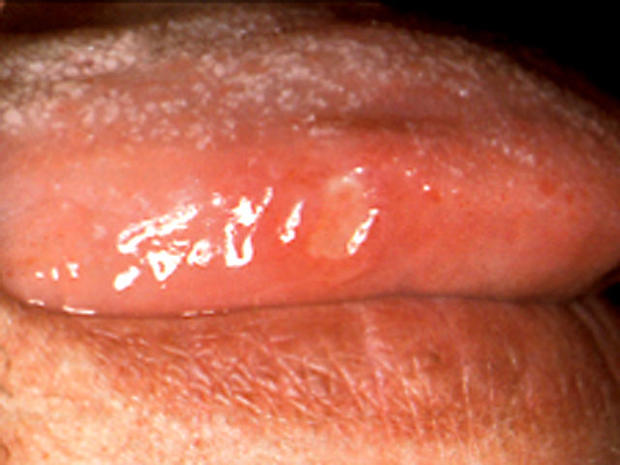Foul mouth: what yucky signs say about your health
Dr. Levine is an associate professor at New York University School of Dentistry and the author of "Smile! The Ultimate Guide to Achieving Smile Beauty."
Coated white tongue
White patches known as oral leukoplakia are often precancerous. Other possibilities include an overgrowth of yeast called "thrush," an autoimmune disorder called lichen planus, or even syphilis.
Black tongue
Inflamed gums
Geographic tongue
A geographic tongue is marked by discolorations or by fissures that give it a map-like appearance. Apparent causes include hormonal changes (women are twice as likely as men to have geographic tongue), diabetes, allergies, skin disorders - or even psychological stress.
